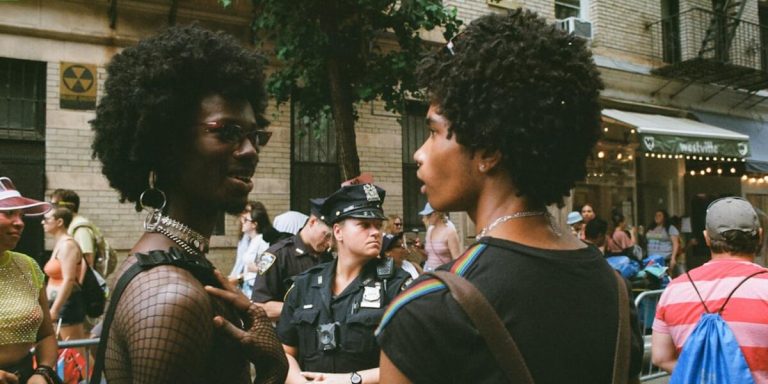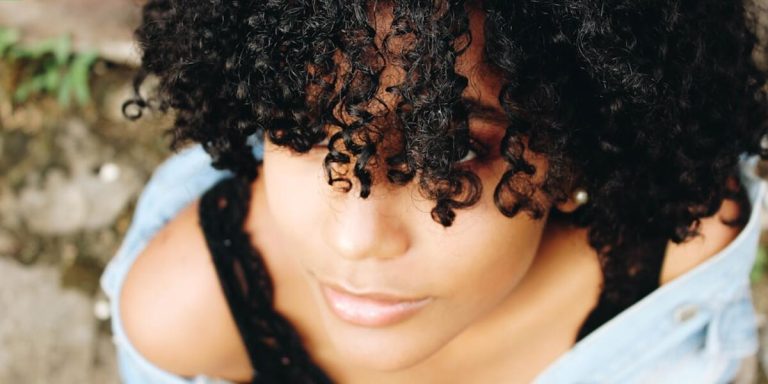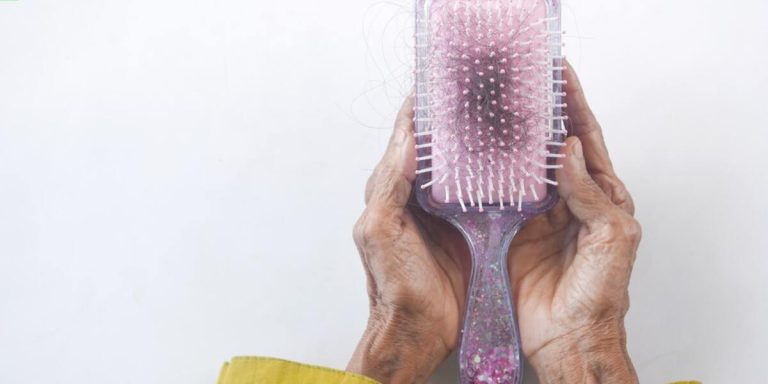Does Shea Moisture Cause Hair Loss? Unraveling the Truth Behind the Rumors
The debate has been raging over time – “Does Shea Moisture cause hair loss?” Well, you’re not alone if this question is crowding your mind as well. This globally recognized brand that boasts of a natural and organic product line-up has stirred up quite a storm in recent days with rumors about its products causing hair fall.
Refuting or confirming these speculations require deep scientific insights and accurate knowledge related to the composition of Shea Moisture’s products. Are they really potential culprits behind increasing bald patches? Or are these just baseless assumptions made by consumers facing coincidental hair loss issues after using their range?
Let us unravel all these aspects meticulously as we delve into analyzing how the ingredients used could impact your tresses’ health.
Did you know?
Contrary to popular belief, Shea Moisture products can actually promote hair growth due to the high content of fatty acids in shea butter which moisturize the scalp and reduce inflammation. Misuse or overuse, however, may lead to product build up and possibly temporary hair shedding.
Understanding Hair Loss: The Role of Product Ingredients
The quest for luscious, healthy hair often guides us to a multitude of products with promises of transformative results. However, it’s crucial to note that the ingredients within these treatments play a significant role in their overall impact on our locks. A popular name under scrutiny recently is Shea Moisture – known for its nourishing shea butter-based concoctions.
As we delve into whether Shea Moisture causes hair loss, it becomes essential to acknowledge that everyone reacts differently to cosmetic formulas. While someone might praise this brand as their saving grace from frizz and dryness, others may report an escalation in hair fall since incorporating these products into their regime.
Understanding your individual response requires thorough knowledge about product composition and how certain components can potentially trigger or exacerbate existing conditions like alopecia (hair loss). For instance, some chemicals in shampoos or conditioners could cause irritation leading to scalp inflammation- one of the common triggers behind premature thinning or balding issues.
With thousands attesting its efficacy yet occasional reports hinting towards potential hair-loss linkages with Shea Moisture usage—it truly underscores the importance of becoming informed consumers; staying aware not only about what goes onto our bodies but also realizing possible implications they may carry—even when outcomes differ vastly across users due level differences in inherent genetics & personal health factors.
Examining Shea Moisture’s Formula: Connections to Hair Health
Shea Moisture is a brand known to many for its extensive range of hair care products. But one question that stands out in users’ minds and Google search boxes alike is – “does Shea Moisture cause hair loss?” To address this, let’s delve deeper into the ingredients list of Shea Moisture products.
The brand primarily uses shea butter, extracted from the nuts of the African shea tree, widely recognized for its nourishing properties on both skin and hair. Besides, it includes other rich ingredients such as mango seed butter, essential oils like coconut oil or argan oil depending upon product variety. These natural components are supposed to promote healthier tresses by moisturizing them thoroughly.
However, be aware that any product formulation isn’t completely devoid of chemicals – even those boasting organic content have some level involved in their stabilizers or preservatives necessary for shelf life extension and maintaining effectiveness over time.
For example: In certain variants within Shea moisture’s line-up you may find Cetrimonium Chloride – used extensively in personal care items because it aids detangling making your mane easier to manage but it has been linked with scalp irritation at timesleading people wonder whether does shea moisture cause hair loss?
Identifying Common Harmful Additives in Hair Care Products
In the quest to identify common harmful additives in hair care products, we need to address one question many have been pondering: “Does Shea Moisture cause hair loss?” This brand has garnered attention due its all-natural tagline. However, it is vital not to jump into conclusions and dissect this concern with a balanced approach.
Shea butter is an active ingredient used by Shea Moisture – acclaimed for promoting healthy tresses due to its natural vitamins and fatty acids content. Given these attributes of shea butter, alleging that it causes hair fall may seem contradictory at first glance.
However, other ingredients combined with shea butter might be culprits contributing towards alleged claims of hair loss seen among certain users. It’s worth noting that each person’s scalp responds differently depending on various factors – from their genetic makeup and hormone balance to diet choices or even stress levels.
With thousands of personal care items vying for consumers’ attention on the market today–many laden with synthetic compounds — understanding which elements can contribute towards detrimental effects such as thinning strands becomes crucial.
Some potentially damaging substances often found in shampoos, conditioners or styling gels include sulfates (SLS), parabens, artificial fragrances/colours/dyes alongside alcohol-based components like Isopropyl alcohol whose excessive use could lead down the path you fear most – Hair Loss!
Analyzing Scalp Reactions to Natural Hair Care Regimens
In modern hair care practices, an increasing number of individuals are gravitating towards natural regimens. Among these, Shea Moisture products have earned a glowing reputation for their organic ingredients and rejuvenating qualities. However, amidst all praise threads and five-star reviews, one question has been raised recently – does Shea moisture cause hair loss?
First off, it’s important to understand that the impact of any product on your scalp largely depends on individual factors such as skin sensitivity or allergies. For some people, switching to a new regimen can potentially trigger reactions from their scalps due to sudden changes in active components being absorbed by the follicles.
In certain cases concerning Shea Moisture products users have reported noticeable thinning or even shedding following continued use. But this doesn’t necessarily denote causality; correlation is not always indicative of direct responsibility.There could be other variables at play here.
Stress levels fluctuating during this period can affect hormone production and significantly influence hair health. Regarding shea butter, the primary ingredient in these products, scientific evidence doesn’t show that it directly triggers hair fall. In fact, shea butter contains essential fats that promote healthier growth. It can help you counter common causes of balding such as dryness, breakage, and dandruff-related issues when correctly incorporated into your routine; ensure that you have no allergic disposition against it.
Signs Your Scalp is Rejecting a Product
Your scalp, just like the rest of your skin, can react in various ways if it’s rejecting a hair care product. One such concern that has emerged recently is whether Shea moisture causes hair loss.
1. Itching and Irritation: A surefire sign that you may need to switch products is an uneasy itching sensation shortly after using the said treatment or shampoo. If shea-based items are causing this discomfort, there might be reasons linked directly with its negative impact on your follicles due to possible allergies or sensitivity.
2. Flaky Scalp: Contrary to popular belief, flakiness isn’t always downplayed as merely dandruff-related issues; it could signal improper hydration levels often seen through scalp reactions when introducing new natural regimens like Shea Moisture products into your routine. An imbalance here could potentially lead to shedding and thinning hairs – something nobody wants!
How Natural Ingredients Can Still Prompt Hair Loss
With the rise in popularity of natural hair care products, many people have started to question whether these supposedly harmless ingredients can actually lead to hair loss. Among those queried is shea moisture – a popular ingredient in various organic hair treatments.
Contrary to what most believe, even naturally derived ingredients like shea moisture could potentially trigger scalp reactions leading to undesired consequences such as shedding or thinning. While popular for its nourishing benefits and ability to restore dry strands, if misused or overused, it might indeed contribute indirectly towards increased fallout.
Shea butter comes loaded with fatty acids that help moisturize your scalp and reduce flakiness while promoting healthy growth patterns. However, applying this rich substance excessively without proper cleansing routines may clog pore openings on your scalps’ surface; fostering an environment suitable for bacterial build-up which sequentially promotes inflammation and subsequent potential follicle damage – resulting in observable decreased density all around the head area.
To balance application rates for maximum benefit extraction and mitigate unwanted side effects, follow these steps:
Preventative Measures for Protecting Against Product-Induced Alopecia
While many products promise to nurture and invigorate your hair, not all live up to their claims. Some might even lead to unexpected damage or loss of hair, adding more stress instead of assuaging it. A perfect case in point is Shea Moisture – a brand that has been accused of causing hair loss by some users.
The relentless question “Does Shea Moisture cause hair loss?” requires us to sift through several factors before jumping into conclusions. Hair care products interact differently with diverse scalp types and conditions; what works magic for one person could become another’s nightmare. Therefore the issue shouldn’t be overly generalized without empirical evidence substantiating the claim.
However, this doesn’t mean you should throw caution to the wind when using any product on your precious locks! As we stride forward in 2023, let’s adopt preventative measures against potential product-induced alopecia rather than curing it post-occurrence as an act too late can never regain lost strands instantly.
Firstly incorporate patch testing methods prior application onto scalp area so as erring towards safety precautions judgments remains primary concern regardless popular brands label choices made earlier times . Patch tests done small skin surface areas determine whether adverse reactions will occur subsequent applications thus preventing total head coverage event unfavorable results noticed trial runs performed initial stages experimentation new regime considerations .
Secondly , recognize importance maintaining balanced diet rich vital nutrients crucial health growth follicles . Unhealthy eating habits poor nutritional intake often principal causes behind cases baldness irrespective external treatments employed combat problem .
Strategies for Safely Introducing New Hair Care Items
Before you start using any new hair care product, it’s essential to understand its potential impact on your scalp and hair health. Particularly when questions linger like “does shea moisture cause hair loss?” Let’s discuss some strategies for safely introducing new items into your routine.
Start by researching the ingredients of a chosen product – this is crucial for preventing unintentional damage from harmful substances often found in these products. Keep an eye out for potentially follicle-damaging elements such as sulfates, parabens and alcohol that could harm overall scalp health.
It’s also worth mentioning gradual integration here too; rather than completely switching over night, try blending old products with new ones during early stages of use. Gradual introduction allows time for better monitoring how well-suited they are without interrupting established health routines.
Another safe strategy includes rotating between different compositions regularly avoiding constant exposure which can sometimes lead down undesirable paths especially if we’re still addressing whether “does Shea Moisture causes hair loss”?
Above all else though maintain focus on maintaining balanced dietary habits since what gets ingested directly contributes towards keeping those strands intact!
Remember staying consistent above everything remains key! While simultaneous exploration introduces novelty ensuring freshness during journey against alopecia prevention in 2023.
Essential Oils and Botanicals: Do They Always Benefit the Scalp?
Numerous individuals are increasingly turning towards natural solutions like essential oils and botanicals to minimize hair loss. However, it is crucial to evaluate if they always benefit the scalp or not.
One popular product that has come under scrutiny in the realm of potential hair-loss remedies is Shea Moisture. The question on many consumers’ minds today is – “Does Shea moisture cause hair loss?” To answer this accurately, we need first to understand what Shea moisture contains and its impact on your locks.
Shea butter – a primary ingredient in most Shea Moisture products – originates from the seeds of African shea trees. Rich in fatty acids such as linoleic acid and oleic acid, these compounds have nourishing properties thought beneficial for strengthening strands while also hydrating dry scalps potentially.
However, just as with any other substance applied onto the skin (or scalp), reactions can vary by individual owing due their unique genetic makeup or sensitivities developed over time. Some users reported experiencing an increase in fallout after using some types of shea-based treatments — though cause-and-effect relationships remain speculative since substantive scientific studies addressing these concern areas are lacking at present moment.
For those concerned about whether does shea moisture causes hair loss should consult with healthcare professionals before initiating new regimens especially when noticeable changes occur during/after usage periods get underway– even seemingly harmless ones like essential oils & plant extracts might sometimes trigger undesired responses if used improperly without appropriate guidance initially sought out beforehand!
Conclusion
In conclusion, the query “does Shea moisture cause hair loss” can be put to rest. The whispers about its role in hair loss are largely unfounded and often misinformed. Instead of attributing your tress distress to Shea Moisture products, it might be a smart move to look into other potential factors like diet, stress levels or genetic predisposition which hold significant weight when discussing hair health.
Remember that knowledge is power – especially when it comes to managing something as personally impactful as hair loss. We urge you not only explore our website for more clarifications on various ‘Hair Loss Causes’ but also consult with a dermatologist if needed. Your bountiful locks deserve nothing less than an informed and proactive approach towards their care!







